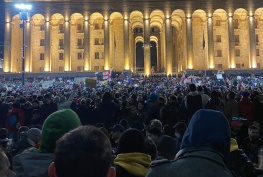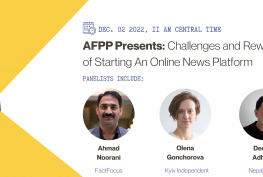By ZAHID GISHKORI
The Kansas City Star
Just four months into the new year, six Pakistani journalists have been killed, putting 2014 on track to become one of the most deadly years for reporters in Pakistan.
Two reporters who have survived recent attacks have chilling stories to tell. Raza Rumi, a senior television anchor, was attacked while in his car; the assailants killed his driver. He fled from Pakistan and is now in Washington, D.C.
“It has been three weeks of surreal moments,” Rumi said by email last week. “I did not know that I would turn into a subject of all that I have been writing against: using violence to suppress dissent, terrorizing the media workers and muzzling free speech.”
Hamid Mir, a news anchor and political talk show host, was also attacked while in his car and is recovering after being hit by multiple bullets.
According to data compiled by the Committee to Protect Journalists and Reporters without Borders — both nonprofit organizations aim to protect and support global press freedom — more than 1,530 journalists have been killed around the world since 1992. Iraq topped the list with 218 journalists killed; the Philippines was second with 112, followed by Pakistan with 87.
As a Pakistani journalist, on a fellowship this year in the United States, I am concerned about the effects of this news on press freedom in my home country.
“Pakistani journalists are under attack from all sides — militant insurgents, the military and intelligence services, drug lords, local criminal gangs, just to name a few,” Robert Dietz, Asia Program Coordinator for CPJ, told me by email.
Gibran Peshimam, political editor for my newspaper, The Express Tribune, a publishing partner of International New York Times, also observed: “The current violence and omnipresent threat to their lives is unprecedented. It is clichéd to say that journalists are not safe in Pakistan. It is, however, important to note that it is getting more unsafe by the day. And that’s the troubling part.”
Peshimam is right to worry about how the violence will affect Pakistan media, because journalists are facing a double-edged sword. On the one hand, there is the government. After Mir was shot, the government tried to revoke the license of his station, Geo TV, because it questioned the role of the military in the attack.
Meanwhile, militants tell journalists “a bullet has been chosen for you.”
Critics have accused Pakistan’s top spy agency — Inter Services Intelligence (ISI) — of harassing and even killing at least one journalist, though ISI and the military have denied the accusations.
Journalists also have been the target of TehreekeTaliban Pakistan and other extremists groups. TTP has publicly taken responsibility for the deaths of several journalists in Pakistan.
These recent attacks signal that the government has not been able to reverse the country’s dreadful record of anti-press violence, despite promises to do so, said Sumit Galhotra, CPJ’s Asia Program researcher.
One issue that needs to be addressed is regulation of content.
Mohsin Leghari, an independent lawmaker from the Pakistan Senate, said that freedom of the press is a great thing, but it has to be exercised with responsibility. He says the electronic media in Pakistan have grown at a phenomenal pace: “The rating war and breaking news phenomena have compromised the content in Pakistan.”
The Pakistan Electronic Media Regulatory Authority must be empowered and equipped to monitor the more than 100 private television channels now operating at the moment, far more than it’s able to do, according to estimates.
The government and media owners must work together to find a balance in legislation that would ensure freedom of the press while also supporting the state’s interests.
But Rumi, who recently talked about his experience on National Public Radio, said he is “appalled at the way media is divided and state is unable to enforce its writ.”
If the government can amend existing press laws by setting new and reasonable standards for all public and private broadcasters and publishers, it could help prevent the loss of more journalists’ lives.
Zahid Gishkori is an Alfred Friendly fellow spending five months at The Kansas City Star. Reach him at zgishkori@kcstar.com.




